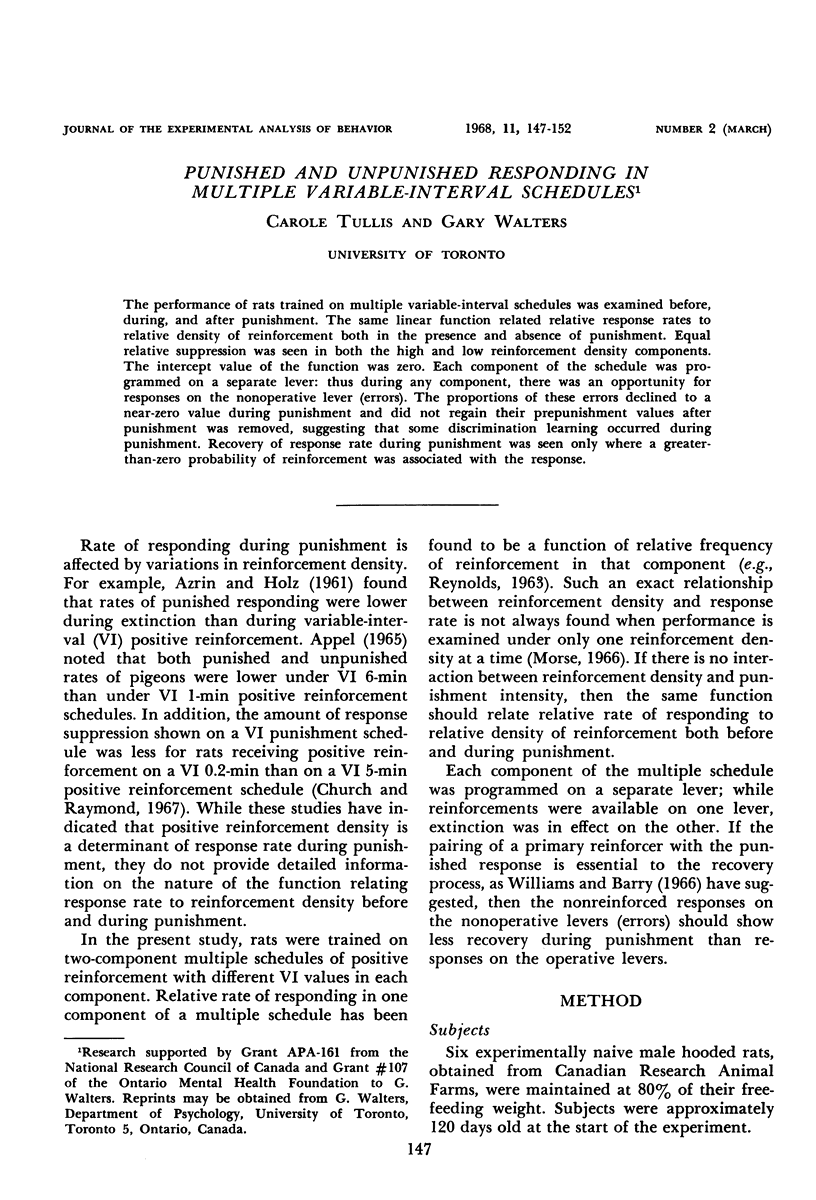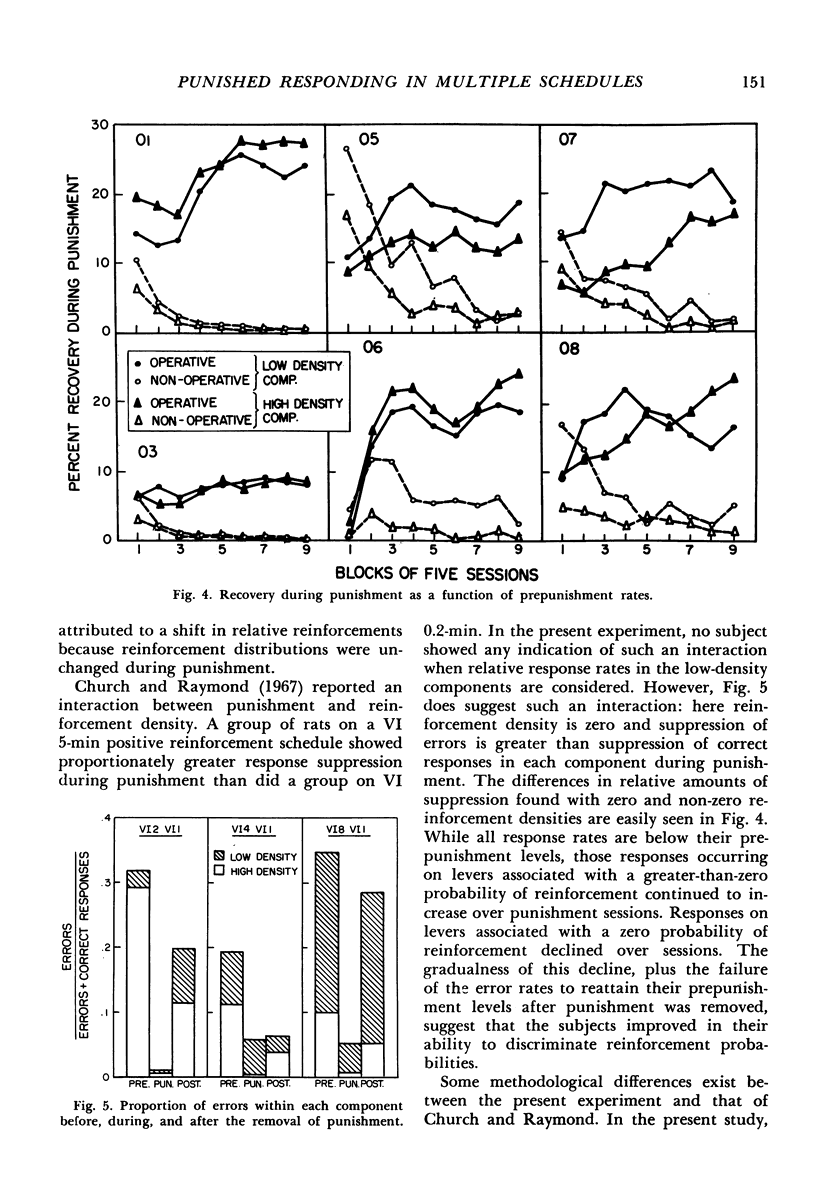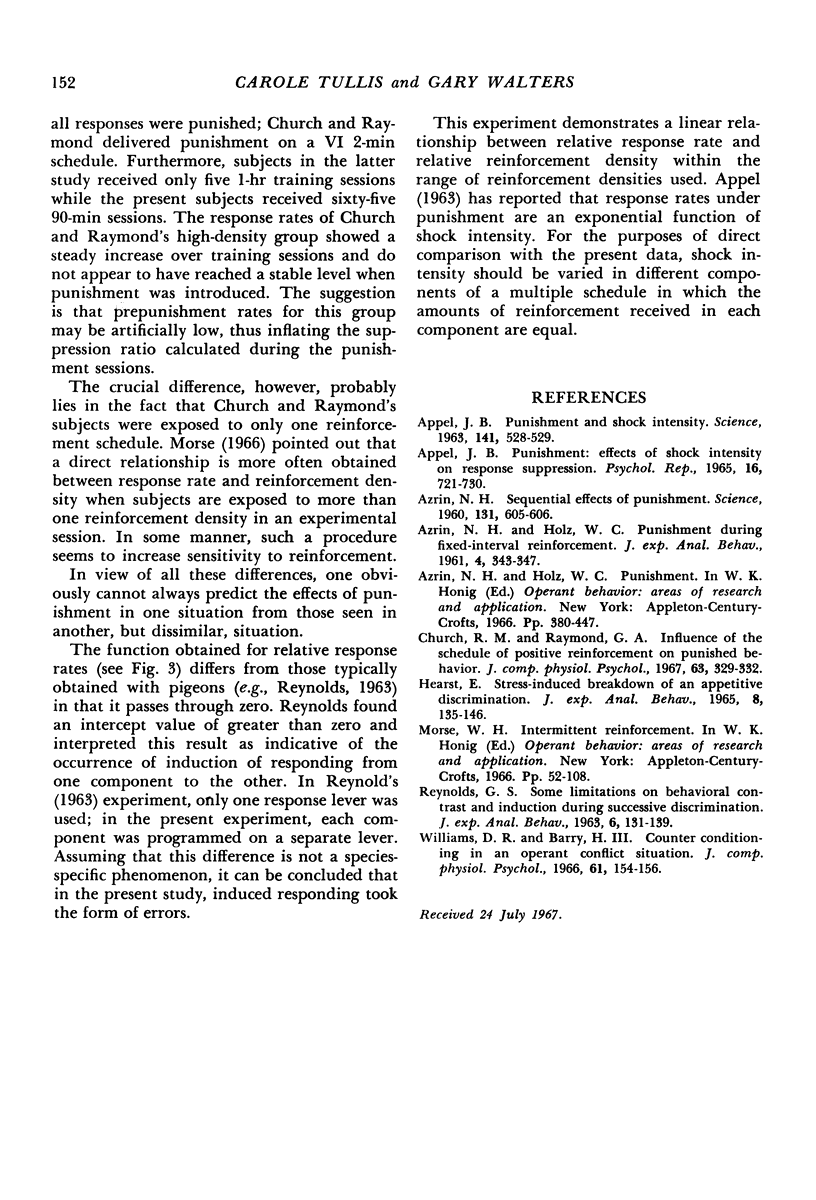Abstract
The performance of rats trained on multiple variable-interval schedules was examined before, during, and after punishment. The same linear function related relative response rates to relative density of reinforcement both in the presence and absence of punishment. Equal relative suppression was seen in both the high and low reinforcement density components. The intercept value of the function was zero. Each component of the schedule was programmed on a separate lever: thus during any component, there was an opportunity for responses on the nonoperative lever (errors). The proportions of these errors declined to a near-zero value during punishment and did not regain their prepunishment values after punishment was removed, suggesting that some discrimination learning occurred during punishment. Recovery of response rate during punishment was seen only where a greater-than-zero probability of reinforcement was associated with the response.
Full text
PDF





Selected References
These references are in PubMed. This may not be the complete list of references from this article.
- APPEL J. B., PETERSON N. J. PUNISHMENT: EFFECTS OF SHOCK INTENSITY ON RESPONSE SUPPRESSION. Psychol Rep. 1965 Jun;16:721–730. doi: 10.2466/pr0.1965.16.3.721. [DOI] [PubMed] [Google Scholar]
- APPEL J. B. Punishment and shock intensity. Science. 1963 Aug 9;141(3580):528–529. doi: 10.1126/science.141.3580.528-a. [DOI] [PubMed] [Google Scholar]
- AZRIN N. H., HOLZ W. C. Punishment during fixed-interval reinforcement. J Exp Anal Behav. 1961 Oct;4:343–347. doi: 10.1901/jeab.1961.4-343. [DOI] [PMC free article] [PubMed] [Google Scholar]
- AZRIN N. H. Sequential effects of punishment. Science. 1960 Feb 26;131(3400):605–606. doi: 10.1126/science.131.3400.605. [DOI] [PubMed] [Google Scholar]
- Church R. M., Raymond G. A. Influence of the schedule of positive reinforcement on punished behavior. J Comp Physiol Psychol. 1967 Apr;63(2):329–332. doi: 10.1037/h0024382. [DOI] [PubMed] [Google Scholar]
- HEARST E. STRESS-INDUCED BREAKDOWN OF AN APPETITIVE DISCRIMINATION. J Exp Anal Behav. 1965 May;8:135–146. doi: 10.1901/jeab.1965.8-135. [DOI] [PMC free article] [PubMed] [Google Scholar]
- REYNOLDS G. S. Some limitations on behavioral contrast and induction during successive discrimination. J Exp Anal Behav. 1963 Jan;6:131–139. doi: 10.1901/jeab.1963.6-131. [DOI] [PMC free article] [PubMed] [Google Scholar]
- Williams D. R., Barry H., 3rd Counter conditioning in an operant conflict situation. J Comp Physiol Psychol. 1966 Feb;61(1):154–156. doi: 10.1037/h0022872. [DOI] [PubMed] [Google Scholar]


